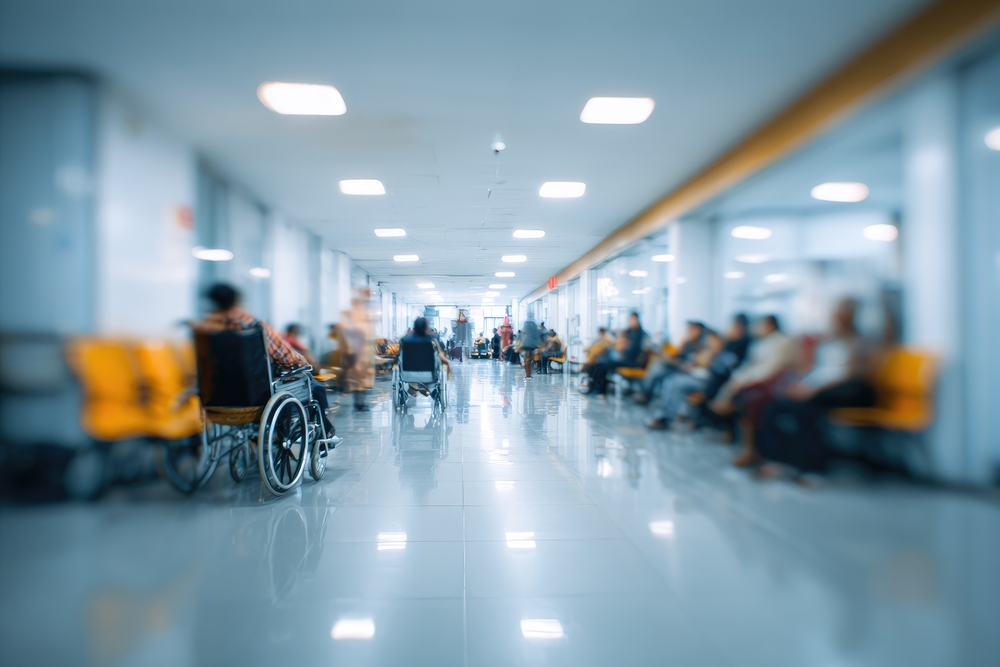A serious accident sends you on an unexpected journey, often starting at the doors of a local hospital or trauma center. After a serious accident in Lincoln or Omaha, the responding medics make a critical decision about where to take you for care.
If you suffered a serious accident, you may find yourself at a facility like Bryan Medical Center, Lincoln's Level II Trauma Center, or Nebraska Medicine in Omaha, a Level I Trauma Center.
The specific treatment you receive at these advanced local hospitals and trauma centers provides the undeniable proof of your injuries that forms the foundation of a personal injury claim.
Key Takeaways for Local Hospitals and Trauma Centers
- Nebraska features a network of general hospitals and designated trauma centers, each equipped to handle different levels of injury severity.
- Trauma centers, particularly Level I facilities like Nebraska Medicine, provide the highest level of comprehensive care for life-threatening injuries.
- The medical records you generate at local hospitals and trauma centers form the primary evidence for your personal injury claim.
- Hospitals often place a lien on a patient's future settlement to secure payment for the services they provide.
Lincoln’s Hospitals and Trauma Centers

Lincoln provides a robust network of medical facilities for residents and those injured in the surrounding areas. The city’s healthcare system offers advanced care through its primary hospitals.
People injured in accidents rely on these local hospitals and trauma centers for immediate and ongoing treatment.
Bryan Medical Center
Bryan Health operates two main hospital campuses in Lincoln and is a major provider of medical services in the region. The Bryan Medical Center East Campus, located on 48th Street, is a Level II Trauma Center, which means it has the resources and personnel to provide initial definitive care for a wide range of traumatic injuries.
For accident victims, this facility often serves as the primary point of care for serious but not catastrophic injuries.
The Bryan Medical Center West Campus offers additional medical services, and its location near downtown Lincoln makes it accessible. Both campuses contribute to a comprehensive system of care that addresses the diverse needs of patients recovering from accidents.
They work together to form a critical part of the local hospitals and trauma centers network for Southeast Nebraska.
CHI Health St. Elizabeth
You can find CHI Health St. Elizabeth in South Lincoln. This facility has a history of providing quality medical care to the community. As part of the CommonSpirit Health system, it has access to a broad network of resources.
While it operates as a community hospital, it’s equipped to stabilize and treat many types of injuries that result from traffic collisions. The hospital also has a well-regarded burn and wound center.
Patients with severe burns from a car fire, for example, might receive specialized treatment here.
Omaha’s Hospitals and Trauma Centers
Omaha serves as a major medical hub for the entire region, attracting patients from across Nebraska, Iowa, and beyond. Its healthcare landscape includes some of the most advanced medical facilities in the country.
Following a major accident, a person often arrives at one of Omaha's premier local hospitals and trauma centers for life-saving treatment. The city’s medical infrastructure provides a high level of care for the most critical injuries.
Nebraska Medicine - Nebraska Medical Center
Nebraska Medicine’s main campus, the Nebraska Medical Center, is a Level I Trauma Center for adults and children. Located in the heart of Omaha, this facility offers the highest level of surgical care for trauma patients.
A Level I designation means surgeons, anesthesiologists, and other medical professionals are on-site 24/7. After a catastrophic motorcycle or semi-truck accident, a patient with multi-system injuries likely comes here.
The comprehensive care available at this location is unmatched in the state and crucial for complex cases. The quality of documentation from these local hospitals and trauma centers can heavily influence an injury claim.
CHI Health Creighton University Medical Center - Bergan Mercy
Located in central Omaha, CHI Health CUMC - Bergan Mercy also holds a Level I Trauma Center verification from the American College of Surgeons. This provides the Omaha metro area with two top-tier facilities for managing the most severe injuries.
Having two such advanced local hospitals and trauma centers strengthens the region’s emergency response capabilities.
This hospital, a partnership between CHI Health and Creighton University, serves as a major academic medical center. Its robust emergency department and surgical teams provide critical care for victims of high-speed collisions and other severe accidents.
Methodist Hospital
Methodist Hospital, situated on West Dodge Road, is another key component of Omaha’s healthcare system. It operates as one of the busiest hospitals in the region, offering a wide array of medical services, including a high-quality Emergency Department.
Though not a designated trauma center, it effectively treats a vast number of patients injured in car accidents every year. Patients often receive initial care at Methodist before being transferred to a Level I center if their injuries require more specialized intervention.
The Role of Trauma Centers in Serious Injury Cases
When you experience a severe injury from a major car or truck accident, medics often transport you to a designated trauma center. These facilities differ significantly from standard hospital emergency rooms.
A trauma center has surgeons, specialists, and equipment available 24/7 to handle life-threatening injuries. Your treatment at one of these specialized local hospitals and trauma centers signals the seriousness of your condition to insurance companies.
The level of care you received helps define the value of your injury claim. Insurance adjusters recognize that a patient admitted to a Level I trauma center sustained injuries of a much greater magnitude than someone treated and released from a local clinic.
How Trauma Care Documentation Affects Your Claim
Trauma center documentation provides a powerful advantage in personal injury claims. Detailed records from local hospitals and trauma centers create an indisputable timeline of injuries and the intensive medical interventions needed to save a life.
These records contain moment-by-moment notes from emergency physicians, surgeons, and nurses. They include results from advanced imaging and diagnostic tests that pinpoint the full extent of your physical harm.
This level of detail eliminates speculation and provides your legal team with the concrete evidence necessary to build a strong case.
Understanding Hospital Liens After an Accident
Soon after you return home, you might receive a formal letter notifying you of a hospital lien. This legal document often causes confusion and worry. A hospital lien is a claim that the medical facility places on your future personal injury settlement.
Nebraska law permits hospitals to file these liens to secure repayment for the medical services they provided. The hospital files the lien with the county clerk, officially asserting its right to be paid from any funds you recover from the at-fault party.
The existence of a lien means the at-fault party’s insurance company cannot pay your settlement directly to you until the hospital’s claim is resolved.
Here are some key points about hospital liens:
- Who Files the Lien: The hospital where you received treatment, such as Bryan Health or Nebraska Medicine, files the lien directly.
- What It Secures: The lien covers the customary and reasonable charges for all medical services provided to you for your accident-related injuries.
- How You Are Notified: The hospital sends a notice of the lien to you, your attorney, and the at-fault party's insurance carrier.
- Its Impact on You: Your settlement check is often issued jointly to you, your attorney, and the hospital, which means the lien must be paid before you receive your funds.
A personal injury lawyer manages this process for you. They confirm the validity of the lien and verify that the billed amounts reflect the care you actually received. Many accident victims in Omaha and Lincoln face this situation after receiving treatment at local hospitals and trauma centers.
Managing Medical Bills From Local Hospitals and Trauma Centers
The medical bills after a stay at one of the area's local hospitals and trauma centers can reach tens or even hundreds of thousands of dollars. Stacks of envelopes from billing departments and collection agencies create immense stress.
Understanding the payment process can help you manage this challenge while you focus on recovery:
- Health Insurance's Responsibility: Send all accident-related medical bills to your health insurance first. Your insurer will process and pay its share per your policy, and you’re responsible for deductibles, copayments, and uncovered services. Keep records of these out-of-pocket expenses for your personal injury claim.
- MedPay Coverage: MedPay, an optional auto insurance benefit, covers medical expenses for you and your passengers after an accident, regardless of fault. It helps with costs like deductibles and copays not covered by health insurance, protecting your finances during injury claims.
- At-Fault Party's Insurance: A settlement, paid by the at-fault party’s insurance, can cover your entire claim. A portion reimburses your health insurance (subrogation) to prevent double payments. Your lawyer also uses funds to settle hospital liens and outstanding medical balances.
How To Obtain and Use Your Medical Records
Your medical records provide the foundation for your personal injury claim and contain the official diagnosis of your injuries, treatment details, and the prognosis for your recovery. Your legal team uses these documents from local hospitals and trauma centers to prove the extent of your damages.
Each medical facility has its own specific procedure for requesting records. Major providers in the Omaha and Lincoln areas, like CHI Health, Nebraska Medicine, and Bryan Health, have dedicated medical records departments.
You or your lawyer must submit a formal written request, often on a specific authorization form, to begin the process. Gathering all your records can take time, so start early.
Certain documents within your file are especially valuable for your claim:
- Admission and Discharge Summaries: These bookend your hospital stay, offering a high-level overview of your condition and treatment.
- Doctors' Orders and Progress Notes: These notes give a chronological account of your care and show how your condition evolved over time.
- Imaging and Test Results: Objective data from X-rays, MRIs, and CT scans provide clear visual evidence of your injuries.
- Billing Records: The itemized statement lists every single charge for your care, from a simple aspirin to a complex surgical procedure.
FAQ for Local Hospitals and Trauma Centers

What Is the Difference Between a Hospital Emergency Room and a Trauma Center?
A hospital emergency room handles a wide range of medical issues, from minor illnesses to broken bones. A verified trauma center, on the other hand, maintains a specialized team of surgeons and resources ready at all times to treat the most severe and life-threatening injuries, often from a car or truck crash.
Do I Have To Pay a Hospital Lien Directly From My Pocket?
No, you typically don’t pay a hospital lien with your personal funds. A hospital lien attaches to your future settlement. The lien gets paid from the settlement proceeds before you receive the final balance.
How Do Local Hospitals and Trauma Centers in Lincoln and Omaha Document Injuries for a Truck Accident Claim?
Local hospitals and trauma centers document injuries with extensive detail. They utilize a combination of physician notes, nursing reports, diagnostic imaging such as CT scans, and detailed billing records.
This creates a comprehensive evidence package that shows the full physical and financial impact of your injuries.
Can a Hospital Send My Bills to a Collection Agency?
Yes, a hospital can send an unpaid bill to a collection agency, even if a personal injury claim is pending. A primary function of a lawyer in an injury case is to communicate with medical providers.
They send a Letter of Protection, which requests that the provider pause collection efforts until the case settles.
Who Negotiates the Hospital Lien Amount Down?
Your personal injury attorney can negotiate the hospital lien. Experienced lawyers know how to deal with hospitals to reduce the lien amount. A successful negotiation increases the total amount of the settlement that you get to keep.
Call Steffens Law Offices, P.C. Today
Your recovery from a serious accident involves more than just physical healing. It requires securing your financial health for the road ahead. The challenges presented by bills and liens from local hospitals and trauma centers are significant, but you can overcome them.
Taking legal action is a forward-looking tool that empowers you to rebuild your life on a stable foundation. Take the next step to protect your future and contact Steffens Law Offices for a free consultation to discuss your case.
Call our Omaha branch at (402) 414-4896 or (402) 414-4898 to connect with our Lincoln team.
